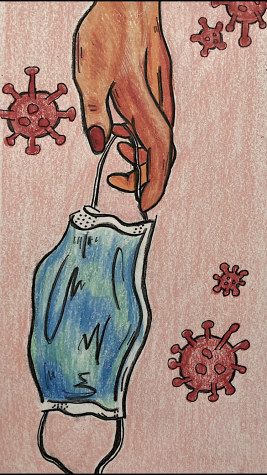Immigration during the pandemic
April 29, 2020
Since the coronavirus has spread worldwide, border closures and strict lockdowns have led to a steep decline in migrants coming to the United States from Central America. Our immigration system is backed up and masses of people are still detained within Immigration and Customs Enforcement (ICE) facilities and large makeshift camps along the southern border. Pandemics have a long history of eliciting political opportunism. Additionally, our current administration has established far-reaching power to restrict immigration in the name of public safety in the recent past.
On March 20, without valid documents on the grounds of protecting public health, the Center for Disease Control (CDC) issued an order to immediately deport non-citizens arriving in the United States. Sending refugees and asylum seekers back to the countries they came from, called refoulement, is illegal under international law. Protecting public health during the COVID-19 emergency obligates governments to enact extreme measures to protect the health of their citizens. However, deporting asylum seekers and refugees who do not have valid documents is a violation of international laws that protect people at risk of trafficking and persecution.
This power was defined in 2017, when the Supreme Court voted that indefinite travel restrictions from eight countries were consistent with the authority granted to the president by Congress. This decision illustrated the ability of an imminent and constant fear of threat to national security by foreign invasion, stoked by the president’s rhetoric, to create the perception of a constant state of emergency. While there should be restrictions on immigration, there is no evidence that outright bans from certain countries aid national security. We are now in a very real state of emergency; fear of the invasion and unknown levels of danger is guiding many national security and political decisions.
Governments should be taking extreme measures to protect the health of their citizens. However, to commit human rights and international law violations designed to protect those who are the most vulnerable is an extreme measure to slow the worldwide spread of coronavirus. It is an act of political opportunism at a time of international crisis.





